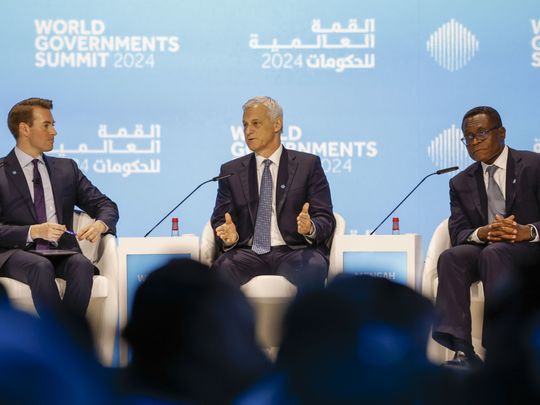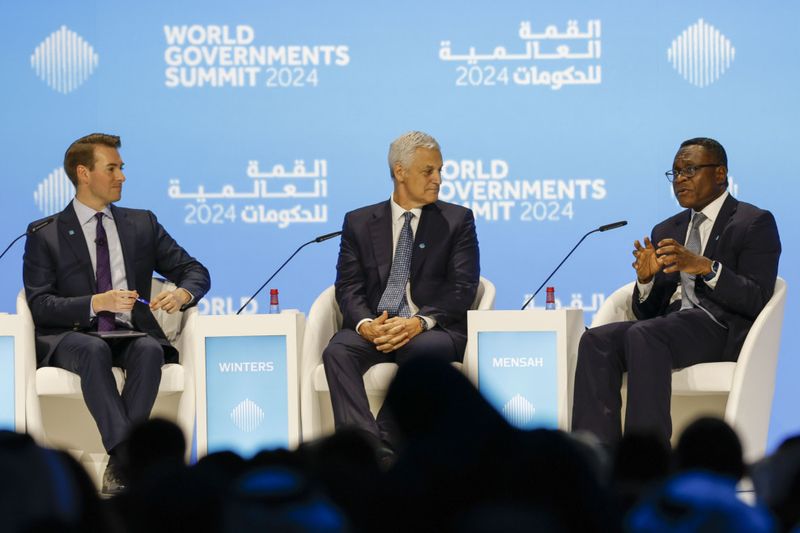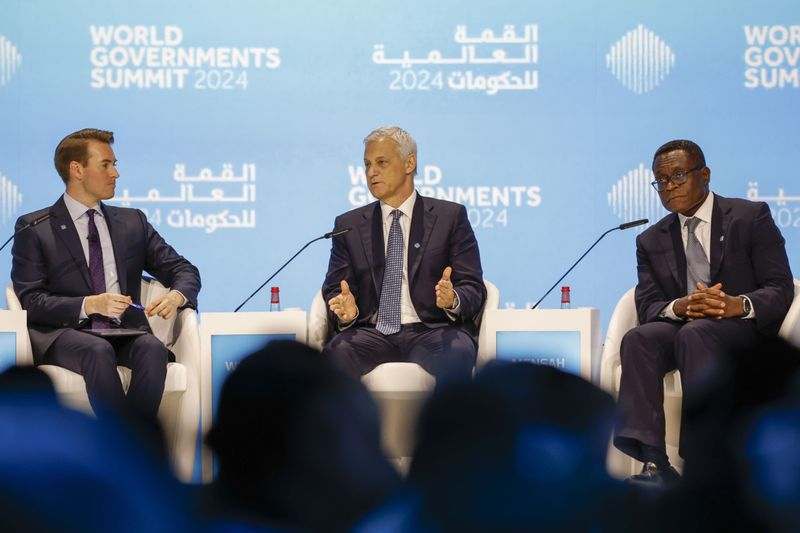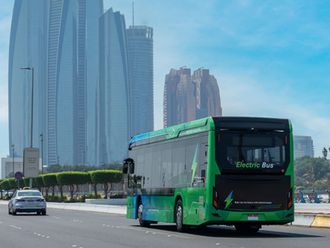
Dubai: The UAE is now one of the top three markets, along with Hong Kong and Singapore, as global connector hubs for financial markets and logistics, according to Bill Winters, the CEO of UK-headquartered multinational bank Standard Chartered.
Speaking at the World Governments Summit in Dubai on Monday, Winters and Bernard Mensah, the president of Bank of America, expressed positivity about the region, emphasising Dubai’s role as a significant connector hub, especially amid changing trade flows between Asia, South Asia, and the Middle East, including China.
“We are extremely optimistic about the region. We see interconnection as a trading and money hub, particularly in Dubai. A significant portion of trade also goes through the Americas and Europe. However, Dubai’s connector role is crucial when trade flows are fundamentally changing. The trade flow between Asia to South Asia and the Middle East, including China, becomes critically important,” said Winters while speaking on the first day of the Summit.
Meanwhile, Mensah said that the UAE has found incredible success in human capital to achieve its economic goals. “Dubai hasn’t relied solely on abundant natural resources but has attracted terrific human capital to leverage its strengths. Across the UAE, there is crowding in of more talent.”
He added: “In finance, we emphasise that ideas and human capital matter; finding the right mix of capital, resources, and ideas is crucial. Human capital coming together at pace and scale gives the sense that the region has taken a step up, partly due to its growth and the influx of talent. Finding solutions for ideas, capital, and venture funds for new start-ups or growth capital will endure for the region.”
Outlook for the region
The International Monetary Fund (IMF) revised its GDP growth forecast for the Middle East and North Africa region to 2.9 per cent this year. However, Winters said: “The International Monetary (IMF)-type figures don’t resonate with what’s happening in the ground, which is tremendous growth.”

He added: “Obviously [there are] huge population and economic activity increases. This is an extremely bullish environment. Despite the fact there is a war in the neighbourhood, the Gulf is a sanctuary for global capital, for people, and that was very clear during COVID [pandemic], given the influx of business and people coming with it.”
Adoption of AI in the banking sector
Companies implementing AI and tech strategies are reaping the rewards, and banks face stiff competition from tech giants. Referring to the ‘magnificent seven’ stocks, including Tesla, Meta, Alphabet, Amazon, Apple, Microsoft, and Nvidia, Winters said they stand out due to their exceptional technological capabilities and robust network models.
“However, in the financial sector, there is no equivalent to the comprehensive network models established by these tech giants. Unlike big tech companies, banks are subject to extensive regulations, providing the banking community an opportunity to compete directly with the tech industry, he said. Standard Chartered, for instance, heavily invests in various digital banks, ensuring competitive technology and talent aggregation.
AI implementation in banks
In terms of internal disruption in banks, companies are adopting AI for customer service, risk management, task automation, predictive analytics, and algorithmic trading. Mensah said the implementation of such technologies at scale is substantial.
“Bank of America has 70 million retail customers in the US. For instance, our application Erica leverages machine learning for bill payments and balance inquiries,” said Mensah.
“However, the challenge lies in consuming new technologies rapidly while adhering to safety regulations for client money, market functioning, and regulatory compliance, he added.

According to Winters, fintech companies are seen as allies, providing convenient platforms that engage with markets efficiently. Most transactions at Standard Chartered are straight through, with almost 90 per cent being automated.
“The goal is to increase this automation further, although there will always be a role for human involvement, particularly in providing advice to customers with digital budgets,” he added.








